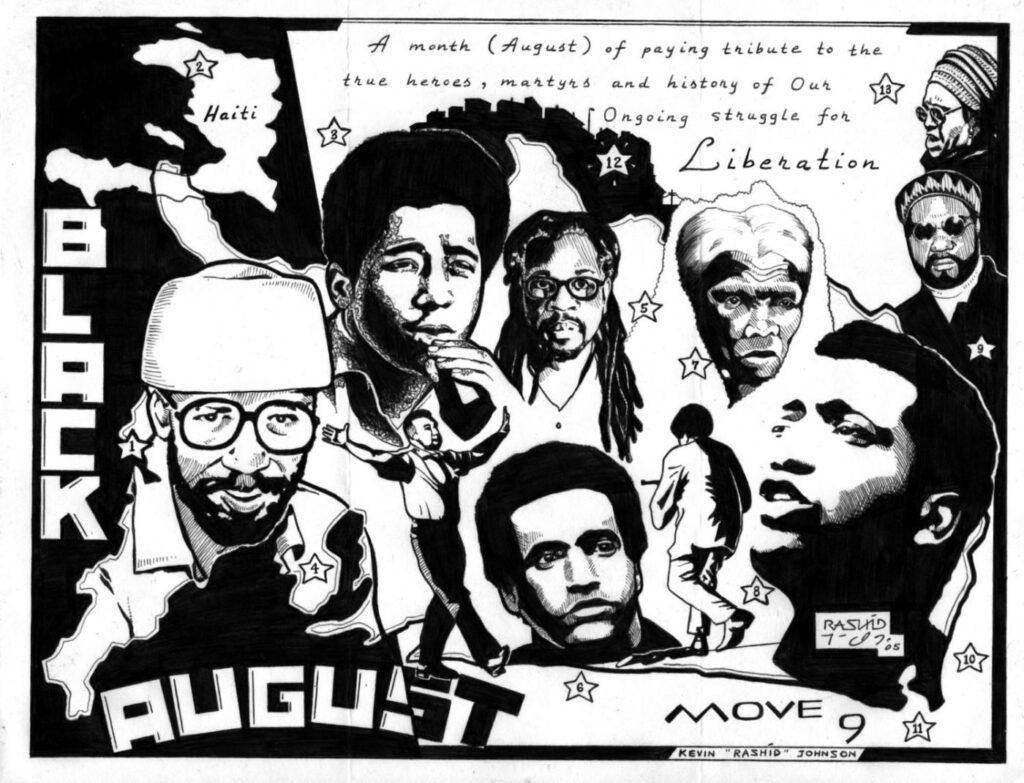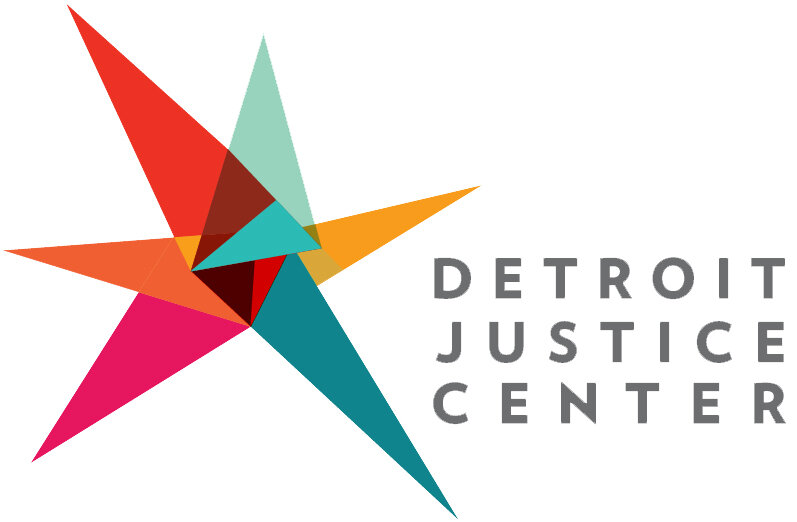
The first Black August took place in 1979 behind the walls of the San Quentin State Prison.
Black people incarcerated in the California prison system organized Black August to honor the lives, deaths, and revolutionary visions of fallen political prisoners, like George Jackson and Khatari Gaulden, who died directly at the hands of prison guards or as result of intentional medical neglect.
The original purpose of Black August – to pay tribute to Black freedom fighters whose resistance resulted in the ultimate sacrifice – remains relevant today.
By emphasizing political prisoners, Black August draws our attention to both a long legacy of Black folks’ resistance to oppression and the role of the prison in suppressing that resistance.
Our work at the Detroit Justice Center proudly draws from that long legacy of rebellion and boldly calls for an end to all forms of policing and incarceration.
Take the work of our Economic Equity Practice, which exemplifies one such form of resistance: the demand for economic self-determination. We help establish new ways of organizing society, through worker-owned cooperatives and community land trusts, to challenge the existing white power structure.
Worker-owned cooperatives resist exploitation, poverty, and wealth-hoarding by giving all members an equal share of profits and an equal voice in how things run.
Community land trusts make gentrification and the possibility of being priced out of your neighborhood far less threatening by putting long-term land ownership in the community’s hands.
Resistance, in its most potent form, is not only clear about what it is against, but also specific in what it is aiming for. At DJC, we know what we’re working towards and we’re actively building up new structures defined by democracy and dignity; structures that will, one day, come to define our society.
We pay tribute to freedom fighters like Fannie Lou Hamer, whose Freedom Farm brought cooperative economics into the lives of thousands of Black folks in the post-Civil Rights South. We pay tribute to a long legacy of dispossessed peoples, who have come together throughout history to pool their resources and push for alternative structures that affirm their humanity when the state refused.
Black August hones in on the reality that this kind of resistance always comes at a price and that price too often takes the form of prison sentences. Centrally, Black August demands that we don’t forget about the people who face punishment by the state for demanding freedom.
While our team at DJC is providing legal services to build up a new world, we remain committed to the ongoing fight in the streets and protestor defense. We continue to represent victims of police brutality from the 2020 uprisings, while we train up the next generation of movement lawyers in practices of community lawyering rooted in racial justice and economic equity.

A commemoration now in its 43rd year, members of the Black August Organizing Committee have detailed the traditional ways Black August has been acknowledged: through individual and collective fasting, studying, community work, as well as political and cultural edutainment.
Participants are also strongly encouraged to write and/or visit someone in prison, to fundraise and advocate for their release, and donate to prisoners, political prisoners, and prisoners of war.
In that spirit, DJC is hosting a Black August Scavenger Hunt to provide our community with a way to deepen their engagement with the fight for freedom and abolition happening right here in Detroit. We invite you to take a first-hand look at the work we’re doing and learn about the legacies of resistance it all stems from.
Finally, we amplify the call to support ongoing campaigns to free all political prisoners across the country. Learn about these freedom fighters’ stories and lend your support:
And more: https://thejerichomovement.com/prisoners


